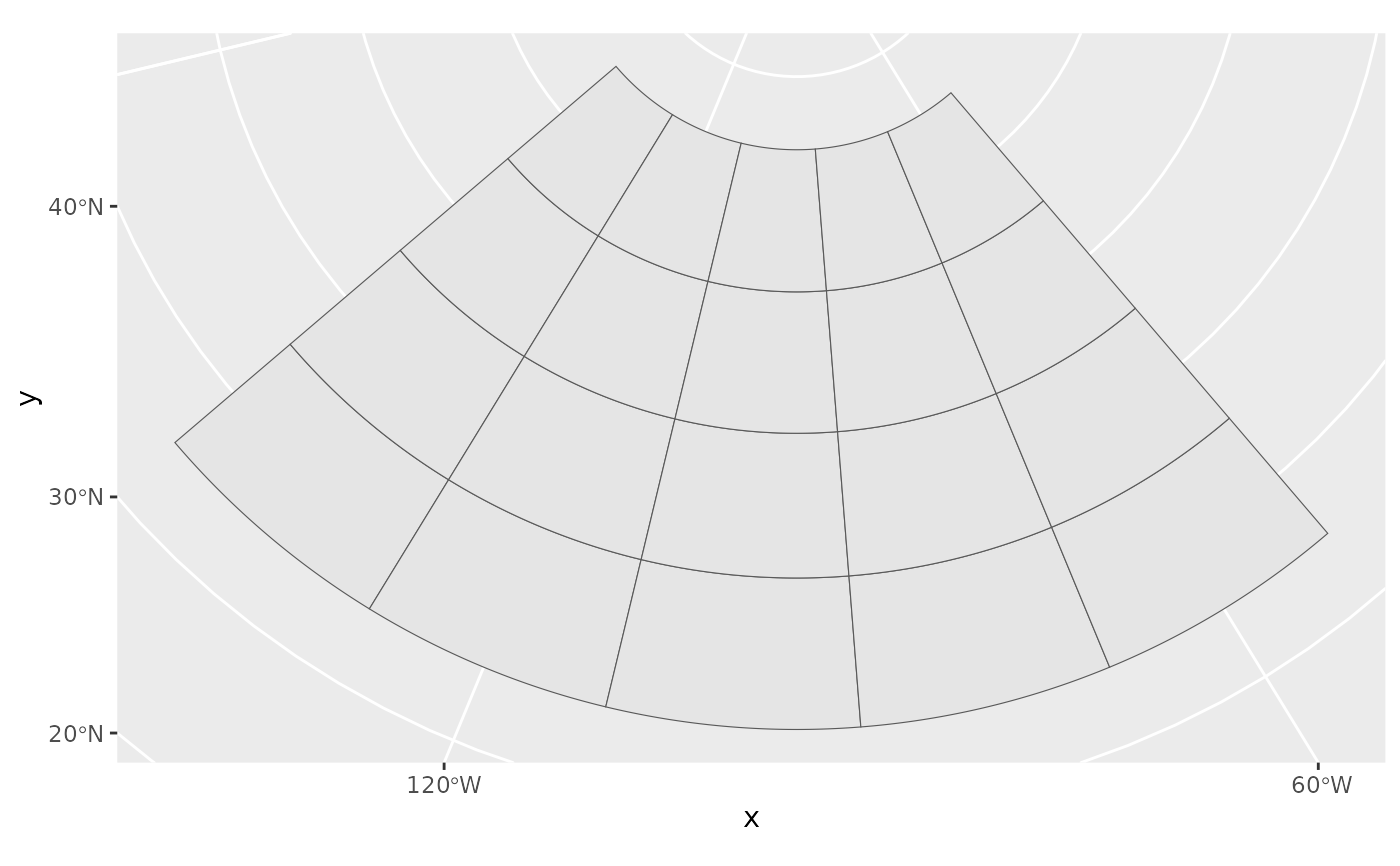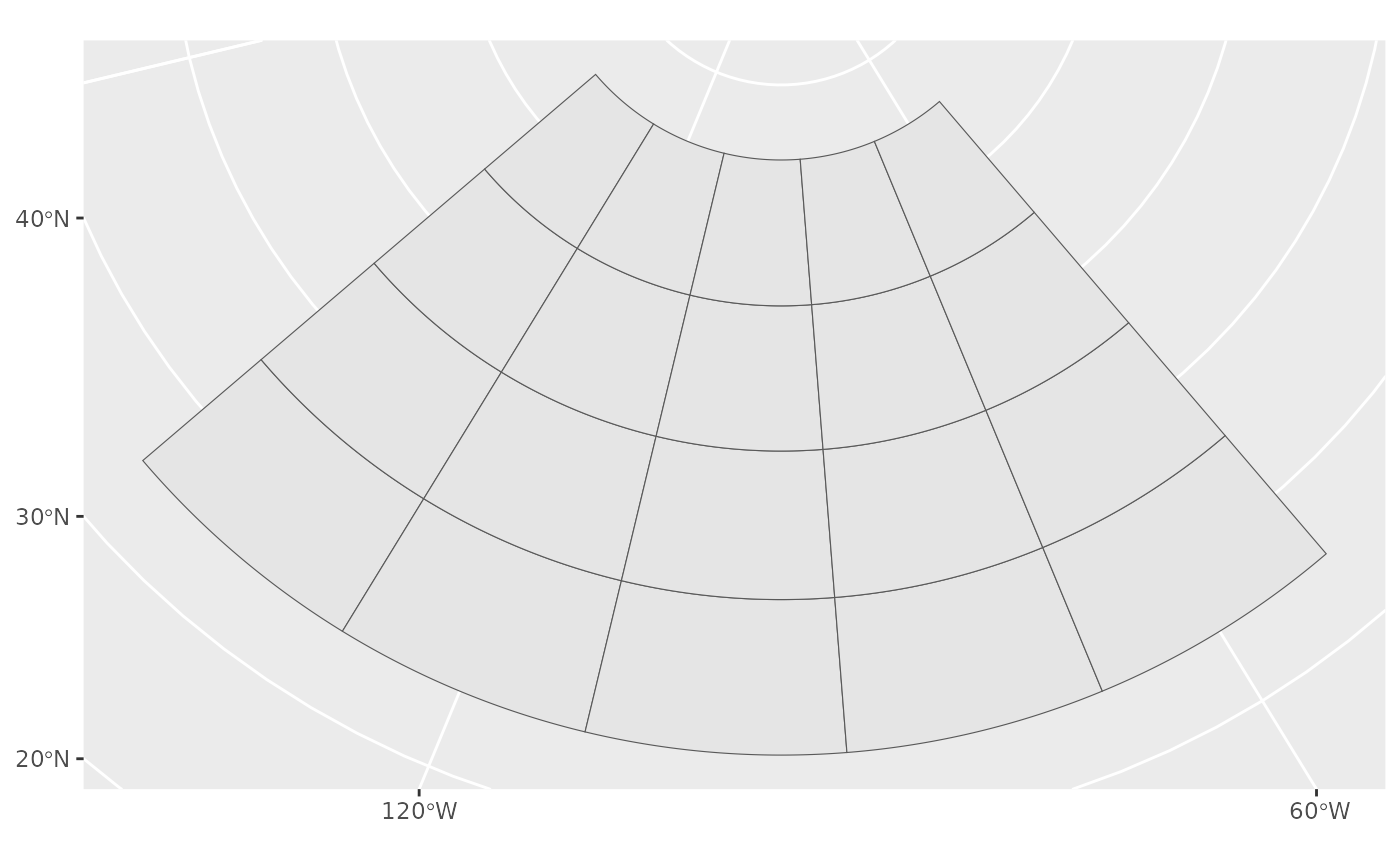If you need to plot a sf::st_bbox(), use layer_spatial() instead.
While the implementation is slightly differrent, these functions are
intended to behave identically to ggplot2::geom_rect() and
ggplot2::geom_tile().
geom_spatial_rect(
mapping = NULL,
data = NULL,
...,
crs = NULL,
detail = 30,
linejoin = "mitre",
na.rm = FALSE,
show.legend = NA,
inherit.aes = TRUE
)
geom_spatial_tile(
mapping = NULL,
data = NULL,
...,
crs = NULL,
detail = 30,
linejoin = "mitre",
na.rm = FALSE,
show.legend = NA,
inherit.aes = TRUE
)
StatSpatialRect
StatSpatialTileFormat
An object of class StatSpatialRect (inherits from Stat, ggproto, gg) of length 4.
An object of class StatSpatialTile (inherits from StatSpatialRect, Stat, ggproto, gg) of length 4.
Arguments
- mapping
An aesthetic mapping created with
ggplot2::aes().- data
A data frame or other object, coerced to a data.frame by
ggplot2::fortify().- ...
Passed to the combined stat/geom as parameters or fixed aesthetics.
- crs
The crs of the x and y aesthetics, or NULL to use default lon/lat crs (with a message).
- detail
Passed to
sf::st_segmentize(): the number of line segments per quadrant of the bounding box. Increase this number for a smoother projected bounding box.- linejoin
How corners should be joined
- na.rm
Should missing aesthetic values be removed?
- show.legend, inherit.aes
See
ggplot2::layer().
Examples
library(ggplot2)
tile_df <- expand.grid(
x = seq(-140, -52, by = 20),
y = seq(40, 70, by = 10)
)
ggplot(tile_df, aes(x, y)) +
geom_spatial_tile(crs = 4326) +
coord_sf(crs = 3979)
 # the same plot using geom_spatial_rect()
ggplot(
tile_df,
aes(xmin = x - 10, xmax = x + 10, ymin = y - 5, ymax = y + 5)
) +
geom_spatial_rect(crs = 4326) +
coord_sf(crs = 3979)
# the same plot using geom_spatial_rect()
ggplot(
tile_df,
aes(xmin = x - 10, xmax = x + 10, ymin = y - 5, ymax = y + 5)
) +
geom_spatial_rect(crs = 4326) +
coord_sf(crs = 3979)
